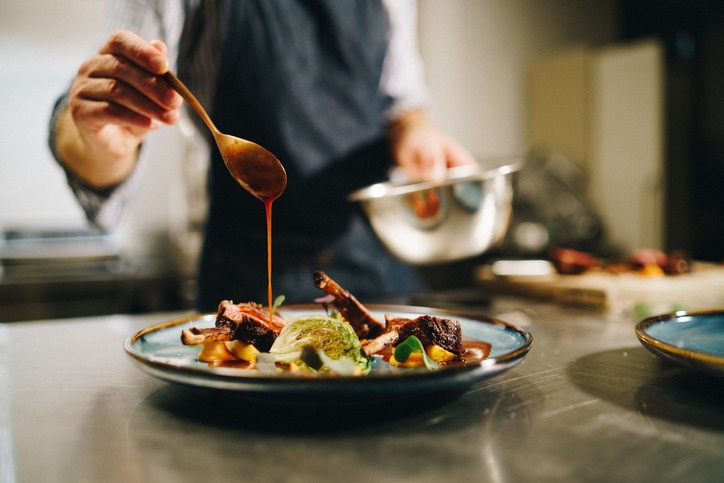With its rich tapestry of flavors, traditions, and innovations, the culinary profession has never been more alluring to those passionate about food. In an era where food transcends mere sustenance to become an art form celebrated across the globe, the decision to become a chef is increasingly popular among creative and ambitious individuals. This career path offers the opportunity to turn a love for cooking into a livelihood and impact society’s cultural and nutritional fabric.
As we delve into the myriad reasons to pursue a career in the culinary arts, we uncover the unique blend of personal fulfillment, artistic expression, and professional opportunities that make becoming a chef a deeply rewarding journey. Whether you’re drawn by the allure of creating new dishes, the prospect of continuous learning, or the desire to bring joy to others through your culinary creations, the path of a chef holds boundless possibilities. Join us as we explore the compelling motivations behind choosing this vibrant and ever-evolving career.
You Have the Talent
This is possibly the primary justification for thinking about becoming a chef. There’s no reason to let your gift go to waste if you possess it. Many people aspire to be cooks, but since they lack the necessary skills, they lack the confidence to continue the professional route. When it comes to cooking, you can always tell when you’re good at something. You may have gotten some accolades, and if you have the correct backing, you think you can capitalize on it.
It is a Great Career
The culinary world is a mosaic of diverse career opportunities, offering paths that cater to a wide range of interests and talents within the realm of food and hospitality. Aspiring chefs are not limited to traditional restaurant settings; the scope for professional growth extends far beyond the kitchen:
- Restaurant Chef: The quintessential role, leading a kitchen team and crafting menus in settings ranging from casual eateries to high-end dining establishments.
- Personal Chef: Providing customized meal services to individuals and families, often involving tailored menus to accommodate dietary preferences and health requirements.
- Food Stylist: Combining culinary skills with artistic flair to prepare food for photography, television, and film, making dishes visually appealing to the media.
- Culinary Educator: Teaching the next generation of chefs in culinary schools, sharing expertise, and fostering a passion for cooking.
- Food Writer or Critic: Analyzing and reporting on culinary trends, restaurants, and food products for publications or digital platforms.
- Research and Development Chef: Innovating in the food industry by developing new products and recipes for restaurants and food companies.
- Food Entrepreneur: Launching a food-related business, such as a café, bakery, or catering service, bringing a personal vision to the market.
These roles highlight the versatility of a culinary career, allowing individuals to leverage their culinary skills in various environments and industries. Whether one’s passion lies in the heat of the kitchen, the creativity of food presentation, the academic realm of culinary education, or the entrepreneurial challenge of starting a business, the culinary field offers a rich array of pathways. Each avenue opens up new possibilities for personal and professional growth, making a career in the culinary arts both exciting and rewarding.
Self-employment
Beyond the traditional path of becoming a chef in a restaurant, the culinary industry offers fertile ground for ambitious individuals to start their own ventures. From opening a boutique café that becomes a community staple to launching a catering business that transforms events into unforgettable experiences, the possibilities are as vast as one’s imagination.
For the culinary entrepreneur, the journey involves more than just cooking; it encompasses the art of business management, understanding market trends, and creating a brand that resonates with a target audience. Food trucks, pop-up restaurants, artisanal food products, and culinary tech startups are just a few examples of how culinary professionals can venture into business ownership.
Growing Industry
A foundational pillar for anyone considering a career as a chef is undeniably a passion for food. This fervent enthusiasm goes beyond mere appreciation for eating; it’s about a deep-seated love for the entire cooking process—from the selection of fresh ingredients to the meticulous preparation and creative assembly of dishes.
Even if people can’t go to restaurants, they’ll still want their food delivered. That means you get to be part of a growing industry that creates more jobs yearly. When you start your own business, you get to create opportunities for others.
You Make a Difference
One of the most gratifying aspects of being a chef is the unparalleled pleasure of making others happy through the universal language of food. A profound sense of satisfaction comes from seeing the immediate joy and contentment on someone’s face as they take their first bite of a dish you’ve poured your heart and skill into.
Chefs can touch lives daily, crafting meals that become the centerpiece of celebrations, comfort during challenging times, or simply a source of happiness in someone’s routine. This direct impact on people’s well-being and happiness is a powerful motivator and a reminder of food’s significant role in our lives.
Creative Expression
The kitchen serves as an artist’s studio for chefs, where ingredients become their palette, and dishes become their canvases for creative expression. This aspect of culinary arts is what draws many to the profession—the ability to transform raw materials into something beautiful, innovative, and expressive. Each plate offers a story reflecting the chef’s journey, influences, and personal tastes.
Chefs innovate by fusing cuisines, experimenting with textures, and pushing the boundaries of traditional cooking methods. This continuous creation and innovation process keeps the culinary field dynamic and exciting, offering chefs an outlet for their creativity that few other professions can.
Being Part of a Community
Embracing a career in the culinary arts immerses chefs in a vibrant, supportive community that extends far beyond the walls of any single kitchen. This sense of belonging and camaraderie among culinary professionals is a cornerstone of the profession, offering a support network and a source of inspiration.
This community thrives on sharing knowledge, experiences, and the collective passion for food, encouraging members to learn from one another, celebrate successes, and support each other through challenges. Beyond the professional realm, chefs engage with the wider community, impacting local food culture, participating in events, and contributing to charitable causes.
Continuous Learning and Growth
The culinary field is characterized by an ever-evolving landscape of flavors, techniques, and trends, making continuous learning and growth a cornerstone of a chef’s career. Pursuing knowledge is not just about keeping up with the latest culinary trends or mastering the newest cooking technology; it’s about deepening one’s understanding of global cuisines, refining skills, and expanding the creative boundaries of what food can be.
Chefs are lifelong learners, constantly exposed to diverse food cultures, ingredients, and methods that inspire innovation and improvement in their craft. This dynamic environment encourages chefs to remain curious and open-minded, fostering personal and professional development. Workshops, culinary tours, and collaborations with fellow chefs are a few avenues for ongoing education.
Recognition and Accomplishments
Achieving recognition and accomplishments in the culinary world is a testament to a chef’s skill, creativity, and dedication to the craft. This journey towards professional acknowledgment enhances a chef’s reputation and opens doors to new opportunities and challenges. These milestones mark significant achievements in a chef’s career, from winning prestigious awards and competitions to earning accolades from respected culinary institutions.
These accomplishments validate a chef’s hard work and talent, offering a sense of pride and fulfillment beyond the kitchen. They also inspire others in the culinary community, setting a benchmark for excellence and innovation. Such recognition is a powerful motivator, encouraging chefs to continue pushing boundaries, experimenting with new ideas, and striving for greatness in their culinary endeavors.
More Reasons to Become a Chef:
Choosing a career as a chef means embarking on a path that is as challenging as it is rewarding, blending art, science, and passion in a way few other professions can. Here are additional reasons to consider this rewarding career path:
- Impact on Health and Wellness: Chefs can positively impact their clients’ health and wellness by crafting nutritious and balanced meals. This aspect of cooking is becoming increasingly important as more people seek out healthy eating options.
- Cultural Exchange: Food is deeply tied to culture. You can learn about and incorporate elements from different cultures as a chef. This enriches your culinary repertoire and fosters greater cultural understanding and appreciation.
- Sustainability & Ethics: Today, chefs are uniquely positioned to advocate for and implement sustainable practices, from reducing food waste to choosing ethically sourced ingredients. You can significantly impact environmental sustainability and animal welfare through your culinary choices.
- Resilience & Adaptability: Working in a kitchen teaches you to think on your feet, adapt to changing situations, and handle stress effectively. These are valuable life skills that can apply to many aspects of personal and professional life.
- Prestige: Being a chef carries a certain prestige and respect, recognizing the skill, dedication, and artistry involved in the profession.
- Influence Food Trends: Play a role in setting culinary trends and influencing what people eat, from farm-to-table movements to the latest in gastronomy.
- Legacy: Leave a lasting impact on the culinary world through your unique dishes, cooking style, and perhaps even a cookbook, inspiring future chefs for years to come.
Conclusion
In conclusion, becoming a chef is driven by a blend of passion, creativity, and the desire to make a meaningful impact through cooking. The culinary profession offers more than just a career path—it presents a journey filled with opportunities for continuous learning, personal growth, and the chance to be part of a vibrant community. From the joy of expressing oneself creatively in the kitchen to the satisfaction of making others happy through food, the rewards of being a chef are as rich and varied as the flavors they create.
Entrepreneurial opportunities and the potential for recognition further highlight the dynamic and rewarding nature of the culinary world. As we’ve explored the myriad reasons to pursue a career as a chef, it’s clear that this profession is not just about cooking; it’s about crafting experiences, forging connections, and leaving a lasting impact on the world’s culinary landscape. For those with a passion for food and a commitment to excellence, the path of a chef offers an endlessly fulfilling adventure.


